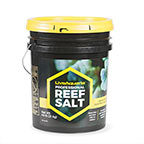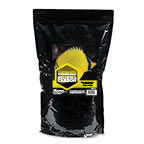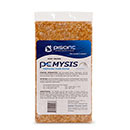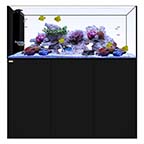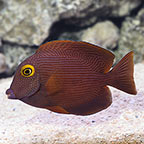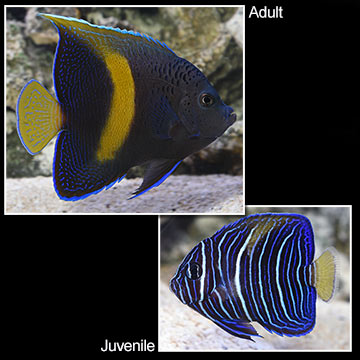
Additional locales and sizes may be available!
Additional locales and sizes may be available! Email me when availableQuick Stats
What do these Quick Stats mean? Click here for more information
What do these Quick Stats mean? Click here for more information
Overview
As the fish matures and grows, a bright vertical bar will appear, and the white vertical stripes will disappear. A neon blue irregular pattern will start to show when the fish attains a length of 3-4", the center vertical stripe will turn a vivid yellow, and the tail a transparent yellow. As the fish reaches its maximum size, it will eventually turn a gorgeous blue with a large vertical yellow bar midbody. The caudal fin is transparent yellow, which distinguishes it from the Asfur Anger, which has a bold yellow tail and dark purple body.
The Maculosus Angelfish is hardy and grows to over a foot in length, so it should be kept in a 250 gallon or larger tank with yellow tail. only one specimen per tank. It is not a good candidate for a reef aquarium since it is prone to nip at stony and soft corals (sessile invertebrates) and clam mantles.
As a member of the Pomacanthidae family, the Maculosus Angelfish is hermaphroditic, difficult to breed, and indistinguishable in color variations from male to female.
The diet of the Maculosus Angelfish should include Spirulina, marine algae, meaty items, and high-quality angelfish preparations containing sponges.
Approximate Purchase Size: Juvenile: Small: 1" to 2"; Medium: 2" to 2-3/4"; Large: 2-3/4" to 3-1/4" Sub Adult: Small: 3-1/4" to 3-3/4" Medium: 3-3/4" to 4-1/4" Medium/Large: 4-1/4" to 4-3/4" Large: 4-3/4" to 5-1/2" Adult:Medium: 3-1/4" to 4-1/4" Medium/Large; 4-1/4" to 5-1/4" Large: 5-1/4" to 6-1/4" X Large: 6-1/4" to 7"



